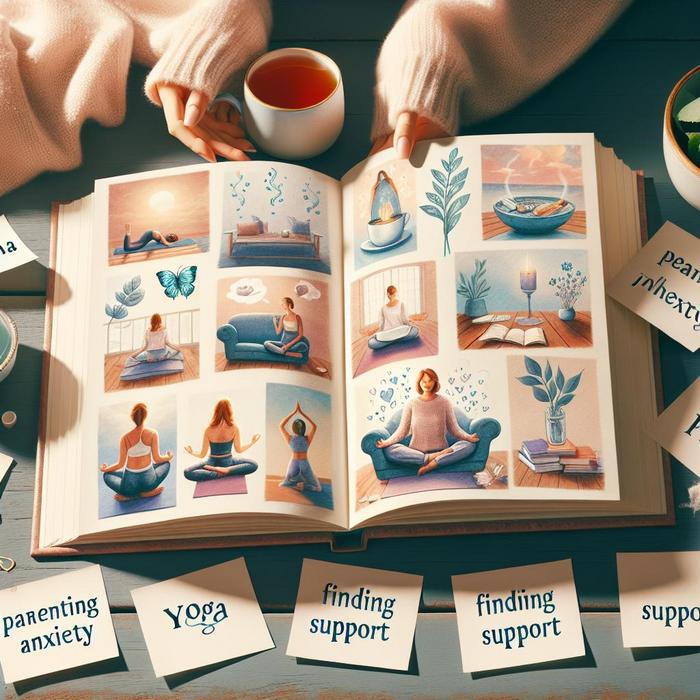Understanding and Managing Parental Anxiety
As fresh or experienced parents, we all have been involved in scenarios where we worry excessively about our children’s safety, well-being, and future. This natural instinct is part of being parents; however, it can sometimes escalate into a condition known as parental anxiety. This article will enlighten you on effective means of managing parental anxiety.
Recognizing Parental Anxiety
Parental anxiety is a state of constant worry or fear related to aspects of parenting and the child’s welfare. Signs may include incessantly worrying about the child’s health, safety, or future; being overly protective, or experiencing frequent bouts of fear and unease.
It’s Okay to Seek Help
Remember, experiencing parental anxiety is not a sign of bad parenting, and it’s okay to seek help. In fact, many parents face such feelings, but unfortunately, they often go unnoticed or dismissed as normal parental concerns. If you’re constantly battling anxious feelings, it’s essential to reach out for support. Professional therapists and counselors help parents effectively manage anxiety by providing strategies and coping mechanisms. Read more on some insightful strategies for coping with parental anxiety.
Self-Care Tips for Managing Parental Anxiety
While professional help is definitely beneficial, there are also things you can do on your own to manage parental anxiety. Here are some self-care tips for reducing anxiety levels:
– Mindfulness: Practicing mindfulness is an excellent way of dealing with anxiety. It helps you stay focused on the present, thereby reducing worries about the future.
– Exercise: Regular physical activity can help reduce anxiety levels. Whether it’s a walk, yoga, or a workout session, this is a great way to deal with stress.
– Healthy Diet: Consuming a healthy diet rich in fruits, vegetables, lean protein, and whole grains can help keep your body and mind in a better state.
– Relaxation Techniques: Techniques such as deep-breathing exercises, progressive muscle relaxation, or meditation can help manage anxiety.
– Good Sleep Hygiene: Ensuring quality sleep is essential for maintaining mental and physical health.
You can find more tips on managing parental anxiety that are sure to help.
Finding Support and Enhancing Emotional Wellbeing
It’s essential to realize you’re not alone in this journey. Sharing your feelings with trusted friends or family members can provide much-needed emotional relief. Joining a parent support group may also provide a sense of belonging and understanding.
Remember, accepting and finding support is not a sign of weakness but a positive step towards enhancing your emotional wellbeing. In fact, taking care of your mental health is as essential as ensuring your child’s well-being. If you need more guidance on managing parental anxiety, you can visit here.
Other Parenting Concerns and Anxiety
Anxiety might be fueled by other parenting concerns like deciding between breastfeeding or bottle-feeding, or worries about household chemicals. Understanding and addressing these concerns can also help manage anxiety levels.
Even though music can enhance a baby’s development, a thought of whether or not you are doing it right might also trigger anxiety.
Remember, it’s utterly normal for parents to worry about their children, but it’s equally important to keep that worry in check. Take care of yourself and enjoy the beautiful journey of parenthood without unnecessary stress.
The Impact of Parental Anxiety on Children
It is crucial to remember that managing parental anxiety is not only important for your wellbeing but also for your child’s. Chronic stress and anxiety in parents can unintentionally get transferred to children, negatively impacting their emotional development and overall mental health. Studies show that children of anxious parents are more likely to develop anxiety disorders themselves.
Teach Kids Coping Skills – Model Healthy Behavior
While your first instinct might be to hide your anxiety from your children, this might not always be the best strategy. Kids are perceptive and can often sense when something is wrong. Instead, use your experience with anxiety as an opportunity to teach your children about emotions, emotional regulation, and coping mechanisms. By modeling healthy coping behaviors, you can provide valuable life skills to your children.
Talking About Anxiety with Your Child
If your child is old enough to understand, it might be beneficial to calmly explain your anxiety to them in age-appropriate language. You can even read books together that help explain these mental health concepts. This can help them understand why you might react the way you do sometimes and encourage them to open up about their feelings.
The Role of Medication in Managing Parental Anxiety
In some cases, medication might be recommended by mental health professionals for managing severe anxiety. It’s important to consult with a healthcare provider who can assess your condition and guide you on this matter. Medication can be a helpful tool in managing anxiety but should generally be considered alongside other therapeutic methods like cognitive-behavioral therapy (CBT).
Embrace Parenting’s Uncertainty
One cause of parental anxiety is the inherent uncertainty in parenting. Despite our best efforts, we cannot predict or control everything about our children’s lives. Accepting this fact can be hard for parents but doing so can help ease anxious thoughts.
The Positives of Parental Anxiety
While parental anxiety can feel overwhelming and negative, remember it can also have a positive side: it stems from deep love and concern for your child. A certain level of anxiety can make you a more cautious and prepared parent, alert to potential dangers. The key is to manage this anxiety so that it remains beneficial, rather than stifling.
Changing Your Perspective
Managing parental anxiety may involve reframing the way you perceive certain situations, focusing on the potential positives rather than dwelling on possible negatives. For example, instead of worrying excessively about your child’s first school day, view it as an exciting milestone.
Remember, managing parental anxiety is possible, and you don’t need to face this challenge alone. Reach out, find support, and embrace the journey of parenthood.
